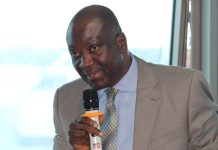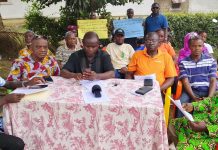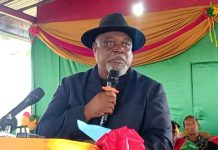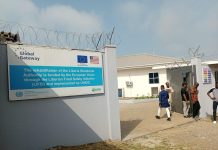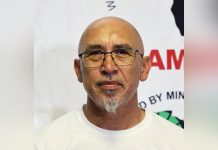Africa-Press – Liberia. The Ministry of Health and Social Welfare (MOHSW) has set up a task force to monitor the distribution and utilization of medicines and medicinal products provided by donors and the government to public health care institutions.
The goal of the task force, according to Dr. Louise M. Kpoto, Liberia’s minister of health, is to build a system that operates with “transparency and accountability” that focuses on patient care and service providers’ welfare.
“The Task Force will work diligently to identify the root causes of issues such as diversion, and misappropriation of medicines and medical supplies destined for our hospitals and clinics,” the minister said.
The task force formation is a result of a revelation made by Jim Wright, USAID Liberia mission director that due to fraud and mismanagement in the health sector donated medicines are often not reaching Liberians who need them.
“I have witnessed this problem firsthand,” Wright said at the launch of the campaign to improve the supply chain for donated medicines. “I have seen empty dispensary shelves in public health facilities across the nation. And, I have spoken with Liberians who have suffered needlessly because they were unable to fill prescriptions they received from their healthcare providers.”
The health sector in Liberia has been plagued by corruption. Allegedly, healthcare providers take donated medicines, and equipment to their private treatment centers. Many nurses and doctors have mini drugstores at home that they use to sell these diverted medicines, and products leaving the hospitals and clinics empty. This has been attributed to a poor monitoring system by the Ministry of Health.
According to Dr. Kpoto, the task force is to conduct a comprehensive assessment of the health sector, both public and private, to identify and document the challenges and bottlenecks that have been hindering the provision of quality health services to our citizens.
Chaired by the chairman of the board of directors of the Liberia Medicines and Health Products Regulatory Authority (LMHRA), Dr. Davis Sumo, the full membership of the task force are the Liberia Medical and Dental Council, the Liberia Pharmacy Board, the Liberia Drugs Enforcement Agency (LDEA), and the Ministry of Justice.
Other members include the National Health Workers Union of Liberia (NAHWUOL), the Independent Health Taskforce of Liberia, the Minister of Health Ex-Official, and the Chief Pharmacist, Secretary to the board.
“This diverse composition will ensure a holistic and inclusive approach to addressing the systemic challenges that bedevil the health sector. The Task Force will work diligently to identify the root causes of issues such as diversion, and misappropriation of medicines and medical supplies destined for our hospitals and clinics,” the minister adds.
Last year, Frontpage Africa obtained the audio, in which Dr. Augustine Nyankun Fannieh, former Margibi County Health Officer (CHO), and other senior staff of the County Health Team were discussing their involvement in financial corruption, fraudulent billings and collection of kickbacks from vendors.
In response to the publication, USAID said it was contemplating USAID whether to retain Margibi as part of USAID’s government-to-government agreement pending a transparent investigation and associated actions to hold accountable anyone involved in the misuse of any U.S. government funds.
“We have a special responsibility to ensure that money provided by United States taxpayers for the benefit of the people of Liberia, including the people of Margibi, is used for its intended purpose.”
Then, the minister of Health, Dr. Wilhemina Jallah immediately recalled all members of the Margibi Health Team who were implicated in the leaked audio, stating that the report had been turned over to the Liberia Anti-Corruption Commission (LACC) for further investigation and possible prosecution.
Apart from diverting donated medicines by individuals for private use and funds, the government of Liberia has also fallen short of adequate funding to public health centers especially in rural areas, causing many to prefer getting treatment from private facilities. Much of what goes to the health sector comes from the USAID and other donors.
Former U.S. Ambassador, Michael McCarthy lambasted the government after a visit to Bomi, Gbarpolu, and four counties in the Southeast. The ambassador said he was deeply troubled to see county hospitals that did not receive what they were promised in the budget.
“Hospitals on which lives depend, where outbreaks are prevented and suffering is alleviated, did not receive any portion of the US$100,000 or more appropriated by the legislature for them to operate,” he wrote in a statement that was widely shared on social media.
He accused the legislature of blocking funding meant to support these health centers denying citizens access to medicines and treatment. “U.S. taxpayers spend around US$60 million a year on health care in Liberia and another US$23 million on education. The same legislature that spent US$65 million on itself in 2022 appropriated around US$7.1 million for grants and subsidies to county health facilities and US$2.76 million for operations at basic and secondary education (although, as we saw, that doesn’t mean the funds reached their intended destination.”
For More News And Analysis About Liberia Follow Africa-Press


